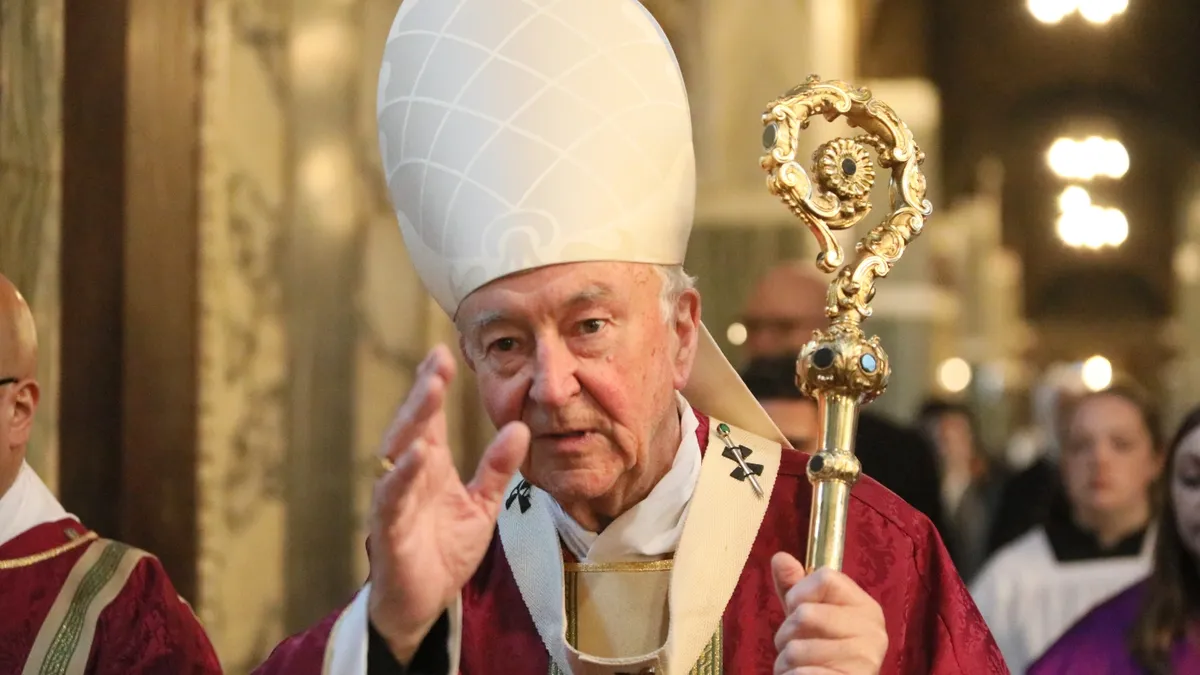
Cardinal Vincent Nichols, the Archbishop of Westminster and the Catholic Church's leading official for England and Wales, is gearing up for an event that many consider pivotal: his first papal conclave. As he reflects on this significant moment, Nichols describes the task of selecting a new pope as both "intimidating" and deeply consequential. He anticipates a thoughtful atmosphere as the cardinals convene within the historic walls of the Vatican's Sistine Chapel.
Once the doors of the Sistine Chapel close, the usual discussions surrounding the perceived divides between conservative and liberal factions will fade, according to Nichols. “That will finish,” he remarked during an interview with NPR, emphasizing that the focus will shift to a more contemplative state. Nichols, who is 79 years old, was appointed as a cardinal by Pope Francis in February 2014, making his presence at this conclave particularly noteworthy.
What sets this conclave apart is the diversity within the College of Cardinals, which is now the most varied in the history of the Catholic Church. A significant number of the voting cardinals, those under the age of 80, were also appointed by Pope Francis. Nichols highlighted this diversity by sharing a poignant encounter with a cardinal from Rwanda, emphasizing the importance of hearing the unique stories from different corners of the globe. “What he’s got to tell us about a country like Rwanda and what it’s lived through is invaluable,” Nichols stated.
Additionally, he noted the presence of a cardinal from Myanmar, a nation currently grappling with a military dictatorship. “We’ve got to listen,” Nichols urged, recognizing that the narratives from these regions contribute to the rich mosaic of the Church worldwide.
Beyond the global perspectives, Nichols underscored the critical need to listen to survivors of sexual abuse within the Church. He shared that he has been meeting with victims for the past 20 years and advocated for the inclusion of outsiders to assist in the healing process. “I can’t take the pain away. I can try to understand it,” he expressed, highlighting the paradox of the Church being the very institution that has caused such suffering.
While Nichols does not expect to emerge from the conclave as the next leader of the Catholic Church, he believes that the individual who is chosen will have made a profound sacrifice. “I think being chosen pope is a mini kind of death,” Nichols remarked. He pointed out that the new pope will lose all privacy and will be wholly dedicated to the role, a commitment he described as a “total surrender.”
During the conclave, cardinals will be fully sequestered in the Casa Santa Marta, the residence where Pope Francis once stayed. This isolation means they will be cut off from the outside world, including television, radio, and cellphones. Nichols humorously noted that while he can manage without his podcasts, he might miss out on soccer scores. “I’m not quite sure what happens to my mobile phone... They might take them off us, I don’t know,” he quipped, expressing concern that he might sleep through important events without his alarm clock. “It’ll be interesting,” he concluded, alluding to the unique experience awaiting him and his fellow cardinals as they embark on this momentous journey.